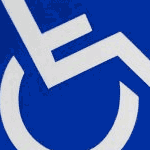 It is interesting to note that despite Ireland being a country that embraces diversity and strives to be all-inclusive, research from the Association for Higher Education Access Disability clearly shows that disabled school leavers are less likely to enter higher education. In fact, they are four times less likely to continue with any type of training. This is borne out by the Central Statistics Office (CSO) figures, which highlight that disabled students are three times more likely to leave school before the age of fifteen years. Further statistics show disabled adults are twice as likely to suffer unemployment compared to nondisabled adults.
It is interesting to note that despite Ireland being a country that embraces diversity and strives to be all-inclusive, research from the Association for Higher Education Access Disability clearly shows that disabled school leavers are less likely to enter higher education. In fact, they are four times less likely to continue with any type of training. This is borne out by the Central Statistics Office (CSO) figures, which highlight that disabled students are three times more likely to leave school before the age of fifteen years. Further statistics show disabled adults are twice as likely to suffer unemployment compared to nondisabled adults.
Traditional Education System
To understand why this situation exists in a land of equal opportunity we must look to the education system. The foremost barrier for disabled children who may also have learning difficulties is that the traditional Irish system was not designed to include these children. Through the years policies formulated to include, these boys and girls into mainstream education have not been followed through, as the current system has been unable to adapt. Instead, a series of bolt on compensatory supports try to breach the gap to address the proper needs of disabled students.
Many different support mechanisms have been provided by the Department of Education such as special needs classroom assistance and special resource teachers, which is of some help. However, the main teaching systems and methods of text based learning and classroom interaction remain the same.
This leads to a constant cycle of needs not being fulfilled. For example, deaf children will never be taught in Irish sign language because third level teacher training colleges do not accept deaf students because they do not fulfil the Irish language entry requirement.
Lack of Equipment and Awareness
The traditional education system does not have any mandatory modules in teacher training for disability awareness, leaving many teachers without the knowledge to manage disability in the classroom. Classroom equipment is lacking for those pupils who need to read textbooks using computers and school staff have no knowledge of the use of the software either. When something as simple as the lack of schoolbooks available electronically cannot be resolved, then teaching of disabled youngsters becomes ad hoc.
Even with this make do and mend system of support provision, with recent cutbacks and the levels of bureaucracy to be dealt with by over stressed parents, to even gain these supports is a trial. Often disabled students may end up with limited or no additional assistance due to local budgetary constraints.
Higher Education
Given the statistics and an education system unsuited to this group in society, it is no surprise that it is difficult for disabled adults to pursue higher education because of the limited access to courses. Many higher-level educational institutions do not have any support systems in place for adult learners, or the funds to supply them. Yet with the help of interpreters and readers, personal assistants and tutors with disabled awareness, these statistics could be overturned and improved in a very short timescale.
With so many children in the system losing out at a fundamental level, changes including greater use of multi media, IT and on screen learning are essential for children with learning difficulties and disabilities. This would at least go some way to furnishing a pathway to higher-level education.
Organisation for Economic Co-operation and Development (OECD) Report
An OECD report for Ireland looks in close detail at the pathways to further education and employment for disabled people and one section highlights the importance of distance learning and open college courses as part of a larger process to strive for full inclusion and opportunity.
The goal of developing distance learning in Ireland is to allow any disabled person who has not had access to higher education to have a meaningful, flexible, learning opportunity. By its nature, this type of course is suited to a person with a disability who can work from the home environment with personal support. Many private colleges offer courses of this type. This method can be a viable means for at least some students who are disabled to achieve qualifications and move into the workforce.
The OECD report also addresses funding and money has been put aside for support systems for these students with a view to seeing some real results by 2016. There is no doubt that funding is limited and supports may be costly, but many colleges of all kinds are willing to discuss the needs of individual students from every sector of society to accommodate their needs and find a workable solution to studying.
There is an urgent need to review the proper inclusion of the disabled in mainstream education so they have the opportunity to learn necessary skills needed in the world in which they live. It is unacceptable for the system to fail these children, young adults, and adults and condemn them to a life of unemployment.